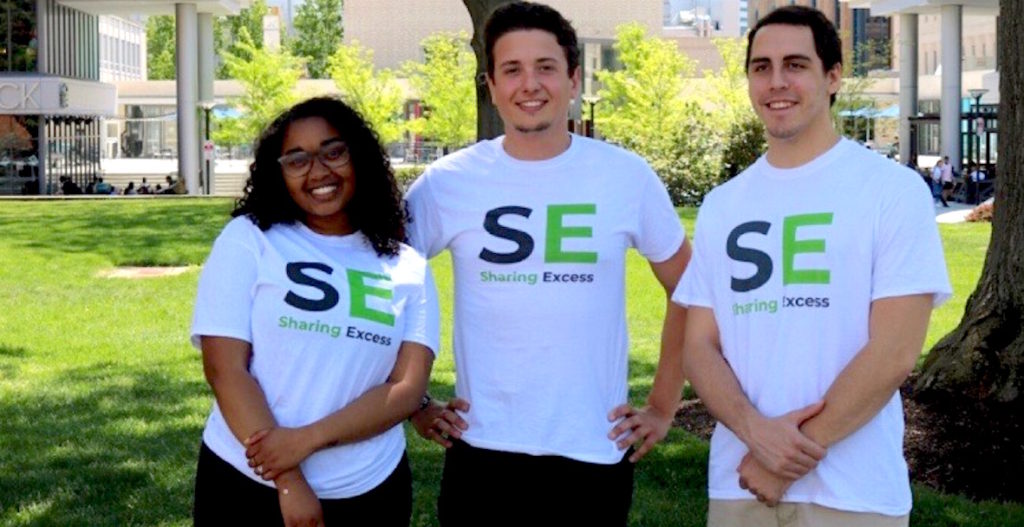Two years ago, as the fall quarter at Drexel University came to a close, Evan Ehlers, then a junior, was ready to leave for winter break when he realized something familiar to many college students. As he headed back to Westchester County, New York for a few weeks, he would no longer have need for his college meal plan. But that plan still had the equivalent of 50 meals left—50 pre-paid meals that would be wasted if he didn’t use them by the end of the term.
Ehlers didn’t want to let that happen. “I thought, ‘Why not just give them out?’” he says.
So he left his dorm and headed for the dining hall, where he swiped his dining card until he no longer could. Then, after filling his car with over 50 meals, Ehlers, alongside his girlfriend, drove to Center City and distributed the meals to the homeless and hungry.
“It was one of the best days of my life,” says Ehlers. “I remember the feeling that I had––that feeling that something great was happening. I had never felt anything like that.”
Indeed something great was happening that day, and it was only just the beginning. Soon after, Ehlers founded Sharing Excess, a food donation non-profit with a mission to engage students, universities and their food service providers in giving leftover campus meals to those in need around the city. Along with six part-time Drexel student employees, Ehlers hopes to roll out the company’s first, large-scale donation program at Drexel within the next year.
“Students want to give back,” says Ehlers. “Currently, there is just no opportunity for them to do something like this. We want to provide that opportunity.”
In the meantime, Sharing Excess is working to end food insecurity in Philly by delivering excess food from grocery stores, such as Trader Joe’s, to social service organizations like Broad Street Ministries and First Stop Recovery. “We are an ambitious group of students,” says Ehlers. “And we want to give back to this city right now, in whatever way we can.”
Ehlers, who is currently a fifth year student within Drexel’s entrepreneurship program, says he has begun to ask himself why he did what he did that December day two years ago—and why he has decided to dedicate his life to fighting hunger. The answer, he says, stems from his childhood.
Ehlers’ mother grew up in Colombia, where she supported her family as a child amidst an environment that was often dangerous. After immigrating to the U.S. and becoming a citizen, she married Ehlers’ father and instilled in her children the idea that a truly virtuous life of prosperity cannot be achieved without helping the less fortunate.
“I have had parents that have helped me through college, and I have had this sort of burning need that I owe something to people that aren’t having easy of a time that I feel like I am having,” Ehler says. “And that is something that truly has always itched at me.”
Eventually, Ehlers hopes to go further than just donating the physical meals from the dining hall, as he did two years ago. Instead, he wants to go deep into the very contract that universities have with their food service providers, turning uneaten meals into donated dollars that can be used to feed the hungry. In his vision, students, the university and the food provider would work together with Sharing Excess to funnel the food wasted to those who need it.
This would be a remarkable accomplishment. Over 326,000 people in Philly lack access to enough food to be healthy. Meanwhile, around 20 percent of edible food ends up in the trash every day, and 90 percent of the region’s 700 food pantries and soup kitchens run out of food at some point during the year. Despite efforts by Philabundance and other hunger-fighting organizations, that disconnect persists—and will, unless someone like Ehlers comes along with a solution.
To Ehlers, Sharing Excess has another benefit too: Tapping into the potential for social change in the millions of college students around the country. “Students want to give back,” says Ehlers. “Currently, there is just no opportunity for them to do something like this. We want to provide that opportunity.”

